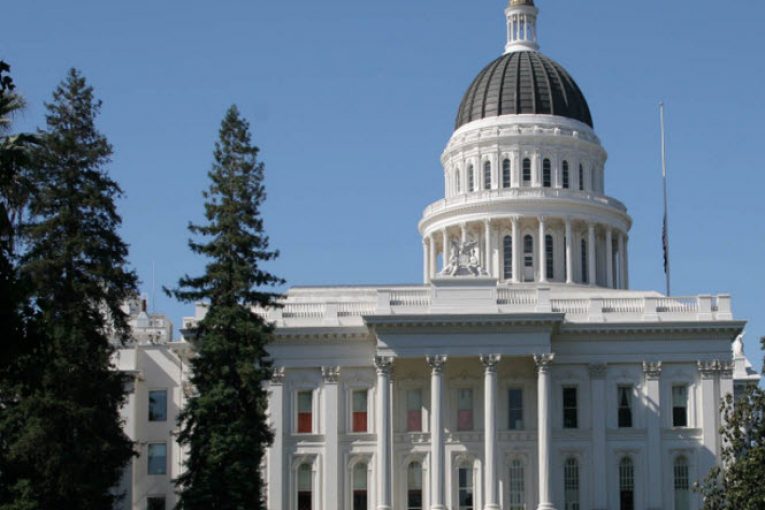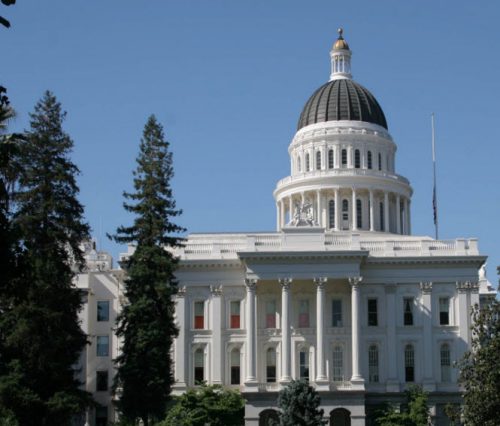

By Ivan Villegas, Vaiva Utaraite and Belen Avelar
SACRAMENTO, CA – New legislation was introduced this week at the State Capitol that would reopen access to California correctional facilities to the news media, state legislators and other state officials involved in the policy-making process.
“California prisons have been among the least transparent in the nation,” said Senator Nancy Skinner (D-Berkeley), who introduced the bill.
Sen. Skinner argued, “SB 254 will re-open access so we can collect more – and better – information about how one of our largest state programs functions.”
SB 254 applies to both state and local correctional facilities and is sponsored by the California News Publishers Association (CNPA) and co-sponsored by the California Broadcasters Association (CBA).
The bill claims it would restore transparency to California jails and prisons to the level it was up until the mid-1990s, effectively bringing the state up to par with other states that offer greater media access to prisons, including Maine, Florida and Rhode Island.
“Current regulations are so onerous that there is no meaningful [news media] access,” said the general counsel for the CNPA, Brittney Barsotti, in support of SB 254. “This bill will ensure access necessary to shine a light on what occurs inside our jails and prisons.”
“When transparency is increased, trust follows,” said the president and CEO of the CBA, Joe Berry.
The measure suggests allowing the media into prisons and jails will inform communities about precisely what their tax dollars are being used for. In 2023, the California Department of Corrections and Rehabilitation (CDCR) allotted $14 billion for the budget. How this money is used remains unclear, critics note.
Bill proponents state that before the 1990s, the media consistently reported on many issues within the prison system, including the use of solitary confinement, the effectiveness of rehabilitation programs, and even the quality and accessibility of physical and mental healthcare.
The “tough-on-crime” era of 1994, the power of the media within prisons was greatly restricted by former Governor Pete Wilson when he gave this power over to the CDCR, who, in turn, “adopted some of the strictest regulations in the country, and they remain mostly in effect today, blocking most news coverage of prison operations.” said Robert Gammon, press secretary for the office of Sen. Skinner.
Since 1998, the Legislature has made nine attempts in trying to reduce the CDCR’s 1996 regulations to restore media access to prisons, added Gammon, explaining that between 1998 and 2012, all nine bills were passed by the legislature, and each time, the then-governors vetoed the legislation.
“SB 254 would be the Legislature’s 10th attempt at restoring media access to prisons,” added Gammon, adding with SB 254 and state realignment of prisons being applied to city and county jails, this allowed for tens of thousands of incarcerated people to have the opportunity to be able to serve their sentence in local jails.
With the help of SB 254, the author’s office argues, this would also allow members of the “Legislature, governor, cabinet members, judges and members of the Committee on the Revision of the Penal Code to be able to tour the prison facilities upon request.”
Gammon said SB 254 bill is modeled after Florida’s prison access law and is said to be much more transparent than California’s.
Some authorizations that SB 254 would allow is to give representatives of the news media the opportunity to tour, interview or prearrange interviews of the incarcerated while touring prisons and jails only as long as the incarcerated person gives consent to being interviewed, and no threat is posed to the security of the institution because of the tour or interview.
SB 254 would also allow “representatives of the news media to be able to use recording devices and video cameras, which are now mostly prohibited,” added Gammon, noting SB 254 would prohibit prison and jail officials from recording the news media interviews being monitored.
SB 254 protects incarcerated individuals from getting punished because of their participation in a news media interview. SB 254 also “directs prison and jail officials to inform the incarcerated person’s attorney of record before a prearranged interview,” added Gammon.
Sen. Skinner stated, “California prides itself on operating a transparent and open government. SB 254 will allow us to live up to that ideal when it comes to our prisons and jails.”